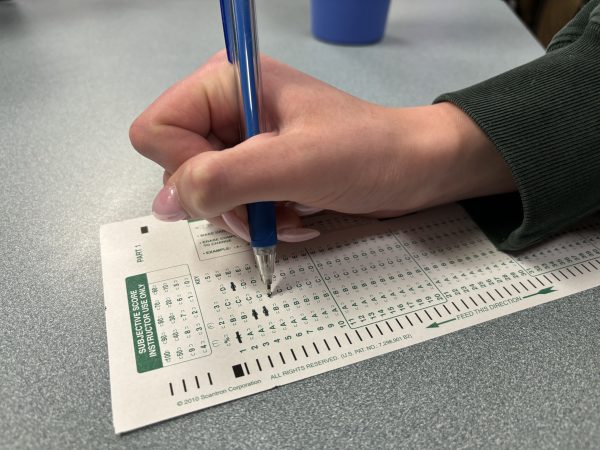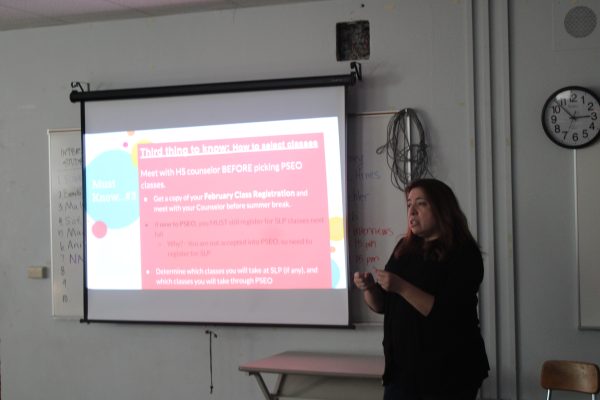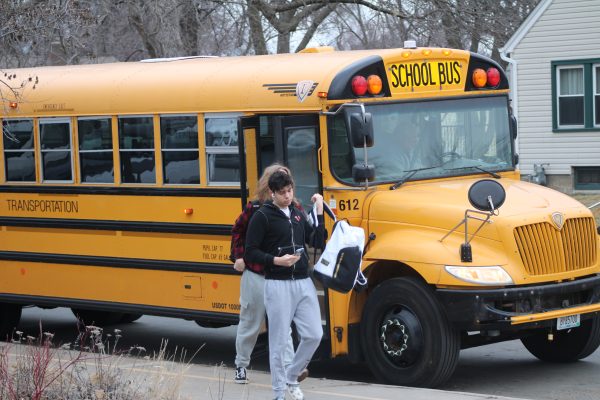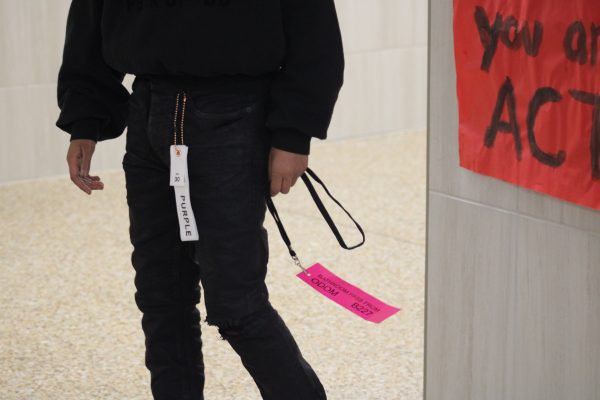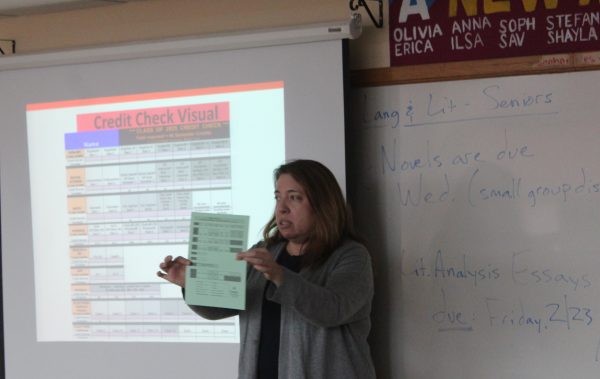Minnesota House of Representatives passes two gun violence prevention bills
Proposed legislation aims to protect community
House files 8 and 9 were sent through Minnesota House of Representatives Feb. 27. The State Capitol houses the Minnesota House of Representatives and Senate.
March 8, 2020
Less than 100 days into 2020, the United States has experienced 47 mass shootings, according to Gun Violence Archive. Junior Daniel Goldenberg said legislation has lagged behind the growing gun violence issue.
“The last couple years with all the school shootings that have been occurring, and it’s nationally and probably locally, we’ve been slow to adjust to what many could see as a crisis,” Goldenberg said.
The Minnesota House of Representatives took steps towards creating stricter regulations on gun sales and ownership Feb. 27 by passing two gun violence prevention bills, House Files 8 and 9.
Rep. Ruth Richardson, the chief author of House File 9, or the “red flag bill,” said the bill would give law enforcement and courts the ability to remove guns from potentially dangerous hands. If there is concern that an individual may impose harm on themselves or others, law enforcement can petition the court to file an Extreme Risk Protection Order.
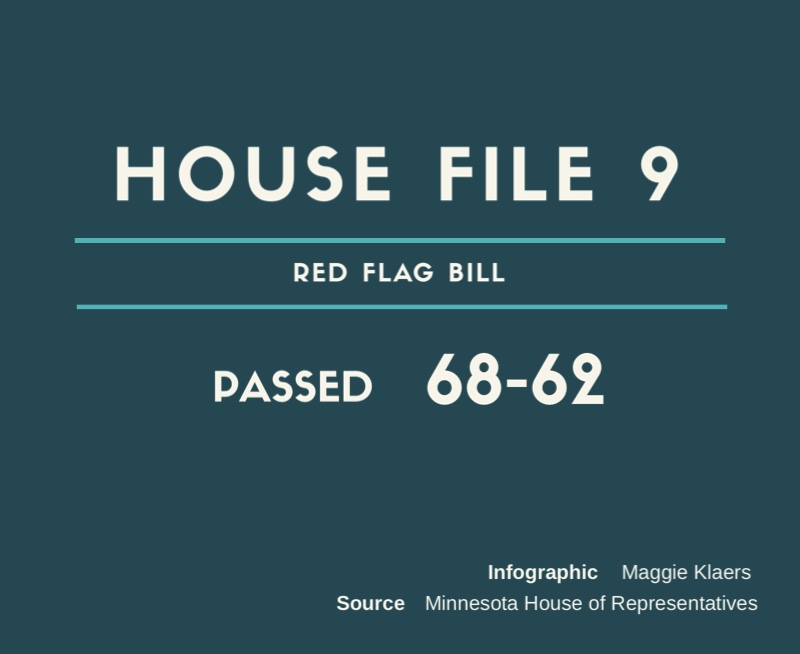 In order for the guns to be confiscated from an individual, a hearing must be scheduled in which evidence is presented from both sides before a court makes a decision. In more immediate cases, law enforcement can petition for an ex parte order, which allows a judge to remove the guns from an individual, then schedule a hearing within the next 14 days.
In order for the guns to be confiscated from an individual, a hearing must be scheduled in which evidence is presented from both sides before a court makes a decision. In more immediate cases, law enforcement can petition for an ex parte order, which allows a judge to remove the guns from an individual, then schedule a hearing within the next 14 days.
“If you look back at the history of red flag laws within the United States, they’re not new,” Richardson said. “What I’ve seen is that so often in the U.S., we are seeing states pass red flag laws after horrific tragedies. That’s what happened in Connecticut, Indiana, California. The list goes on and on in terms of the number that have passed after horrific tragedy.”
House File 8, chief authored by Rep. Dave Pinto, would enforce universal background checks on all gun sales.
Although gun legislation is a hotly debated topic, Richardson urges people to remember that it isn’t about politics, it’s about safety.
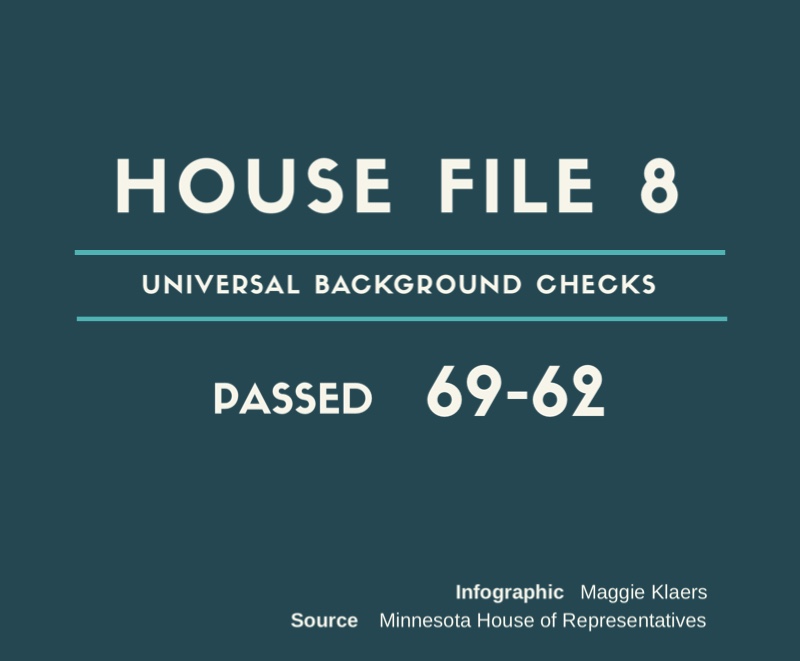
“It’s important to recognize that this is not a partisan issue,” Richardson said. “The fact that red flag laws have been passed in Republican-controlled states and Democratic-controlled states really speaks to the fact that this isn’t a partisan issue, this is all about protecting our communities.”
In 2018, junior Ella Atlas went to the March for Our Lives Rally in Washington D.C. with a Jewish youth group, the National Federation of Temple Youth. She said she felt it was her duty to fight for those who no longer could, like the victims of the Parkland shooting.
“They did not go to school and think, ‘Oh, this is going to happen today.’ So since they’re not here to speak for themselves, we have to do that. There’s no other way things are going to get done,” Atlas said. “Even though we can’t vote, or I can’t because I’m 17, there has to be things done, like registering people for voting and lobbying.”
So since they’re not here to speak for themselves, we have to do that. There’s no other way things are going to get done. — Ella Atlas, junior
Although Goldenberg said he would not want to own a gun himself, he sees multiple reasons why the right to own guns should be protected.
“There’s some people that oppose gun control to the point where it’s like, ban all guns, but I don’t I don’t think that’s the answer because it’s a part of our Constitution,” Goldenberg said. “Obviously, a lot of people say it’s not as relevant today, but there’s still people that want it recreationally or you never know when a government could become oppressive to the point where you need to have some sort of weapons, but I don’t think we’re going to reach that point.”
Goldenberg said he believes the issue needs to be addressed nationally.
“It’s something that needs to be addressed federally, and not just have it be the responsibility of the states to set out these laws,” Goldenberg said.
Now that the bills have passed in the Minnesota House of Representatives, they will move onto the Republican-majority Minnesota Senate floor. Richardson said the best way for people to voice their opinion on the issue is to talk to their representatives.
“Often times when people are weighing both sides of an issue, hearing directly from their constituents is going to be the most effective way of encouraging people,” Richardson said. “The State Capitol is our House, and so it’s open to folks and being able to come in and talk face to face with your representatives is the best way to make any sort of change.”







